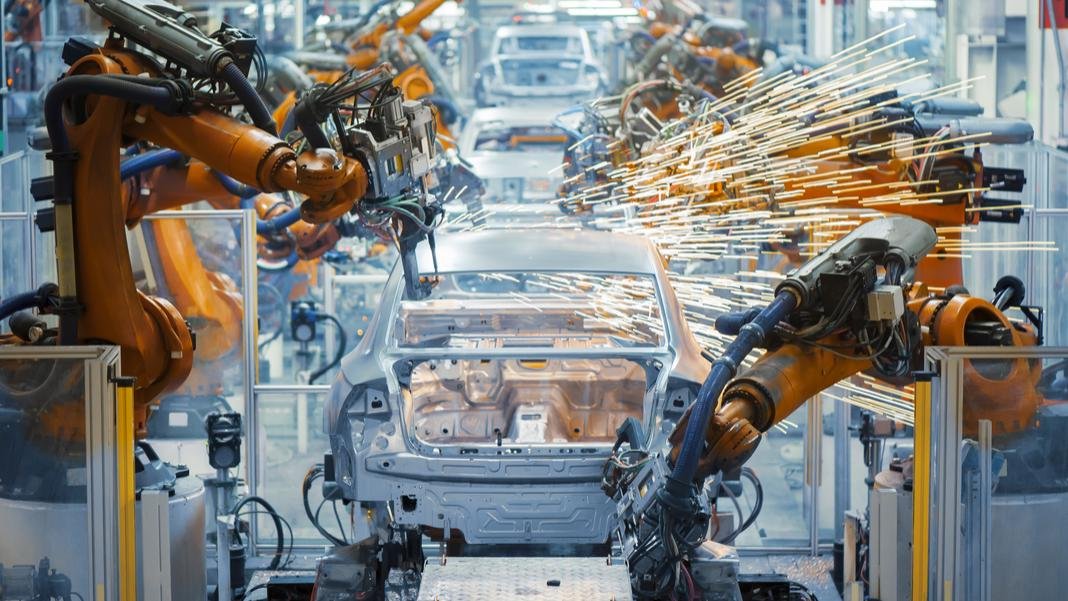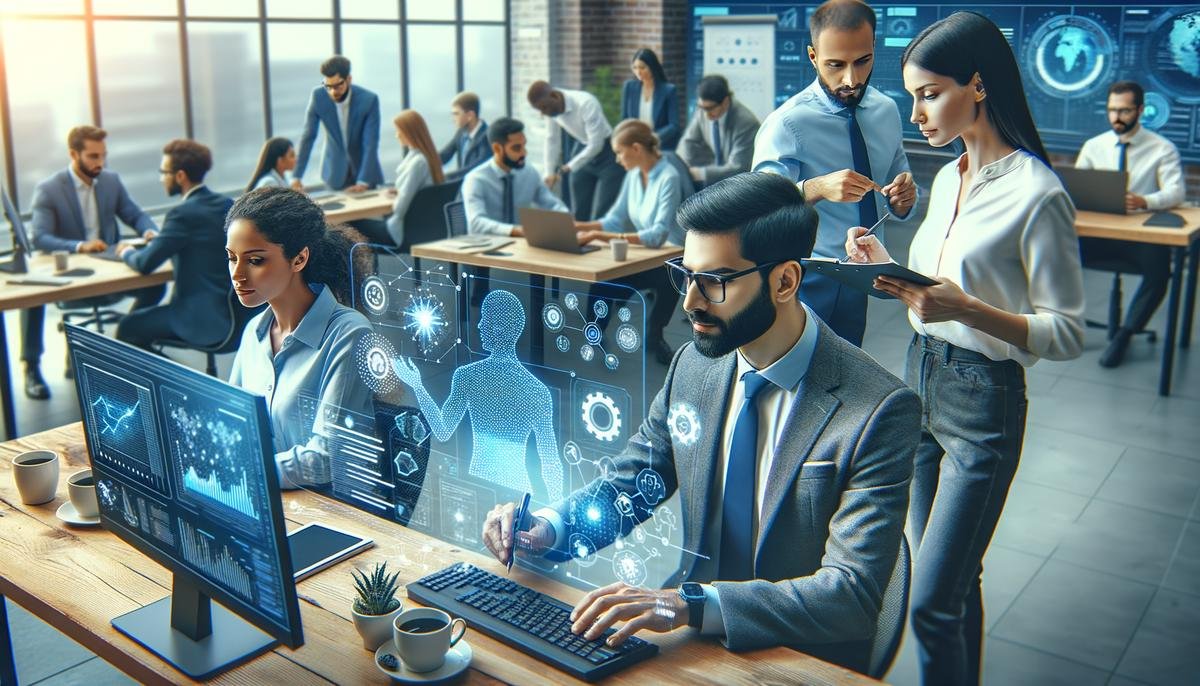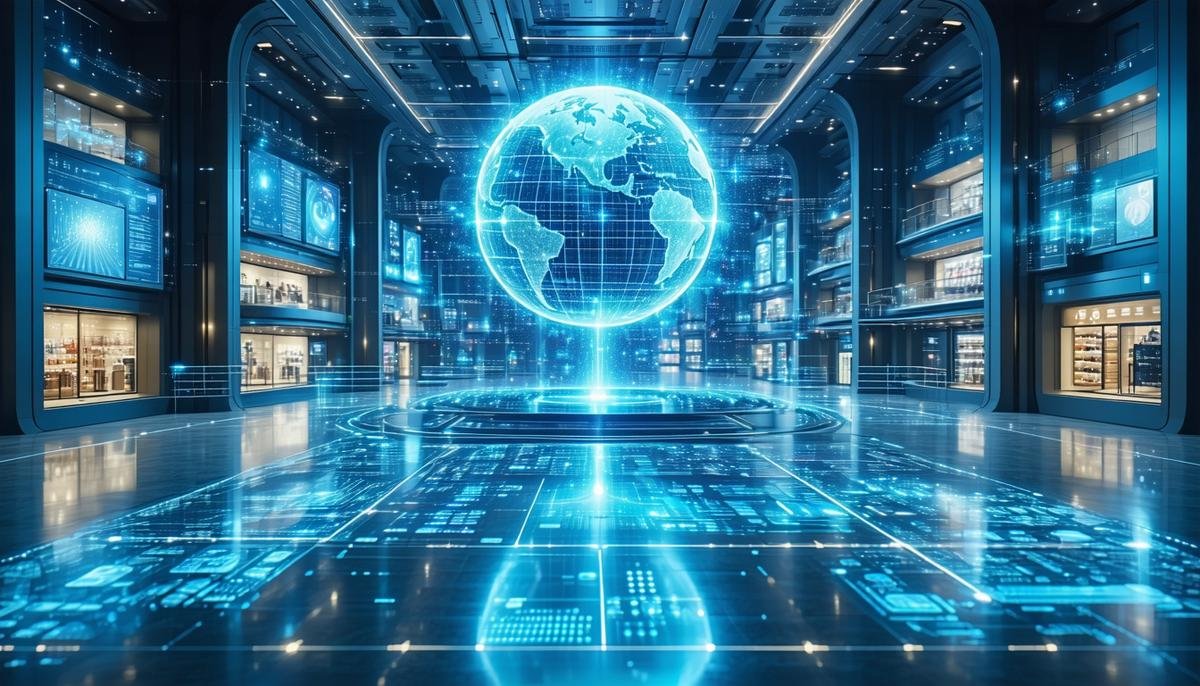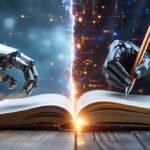Human-Machine Collaboration
Automation in the workplace is about collaboration between humans and machines. AI handles data processing and repetitive tasks, allowing humans to focus on judgment, creativity, and empathy. Consider these examples:
- In healthcare, AI assists doctors with analysis while nurses provide compassionate care.
- Manufacturing sees robots handling strenuous tasks, freeing humans for maintenance and quality control.
- Banking uses AI for fraud detection, with human experts making final decisions.
- In education, AI tutors personalize learning, enabling teachers to foster critical thinking.
- Retail employs AI for trend forecasting and inventory management, while humans provide personalized customer service.
The key is creating a balanced workplace where technology augments human effort. Organizations must invest in training employees to work alongside digital tools, fostering an environment where human-machine collaboration produces superior results.

Upskilling for AI
As AI reshapes industries, upskilling is crucial for career relevance. It's about gaining AI literacy and understanding its capabilities and limitations. Data analytics is a vital skill, enabling the transformation of information into valuable insights for strategic decisions.
However, human skills like creativity, critical thinking, and emotional intelligence remain essential. The ideal approach combines technical prowess with these uniquely human attributes, creating valuable professionals who bridge the gap between cutting-edge technology and traditional human judgment.
Businesses need to foster a culture of continuous learning, providing training opportunities and encouraging employee development. This approach ensures that as AI evolves, the workforce evolves with it, leading to a workplace that thrives on innovation while maintaining its human core.

AI-Driven Business Models
AI is transforming business models across industries:
- Finance: AI-driven analytics identify market trends and customer behaviors, enabling customized investment platforms.
- Retail: AI optimizes inventory management, predicting consumer demand and stock levels.
- Marketing: Hyper-targeted advertising based on consumer data analysis.
- Manufacturing: AI enables predictive maintenance, minimizing downtime and maximizing production.
To capitalize on AI's potential, businesses must deploy it strategically, aligning its capabilities with core organizational goals. This involves experimenting with smaller pilot projects to understand AI's strengths and limitations before full implementation. By embracing AI thoughtfully, organizations can create innovative and profitable business models that leverage the strengths of both human talent and artificial intelligence.

Ethical and Governance Challenges
Incorporating AI into workplaces presents ethical and governance challenges. Ensuring fairness, transparency, and regulatory compliance is crucial. Organizations must regularly audit their algorithms for biases and maintain transparency in AI decision-making processes to build trust.
Compliance with legal and ethical standards is essential, requiring strict governance structures. Maintaining human oversight helps navigate the nuances that AI might miss. Data privacy and protection must be prioritized, treating employee information with the utmost care.
By focusing on these aspects, organizations can create a work environment where AI and humans operate as allies, fostering growth, trust, and innovation.
Future-Ready Workforce
Building a future-ready workforce involves equipping teams with the right mindset and skills. Fostering a culture of continuous learning through dynamic, engaging opportunities is crucial. This can include:
- E-learning platforms
- Interactive workshops
- Real-world challenges
Diversity and inclusion are catalysts for innovation and creativity. Promoting an inclusive environment where every voice is valued unlocks the full potential of teams. Involving employees in AI policy development ensures alignment with company values and employee needs, fostering trust and engagement.
Employee engagement is vital for a thriving, future-ready workforce. Leaders should cultivate an environment where employees feel connected, motivated, and valued. This might include:
- Flexible work arrangements
- Open communication
- Meaningful recognition programs
Organizations that embrace these principles will be well-positioned to thrive in the AI-driven future, maintaining a vibrant human element at their core.

In the evolving landscape of technology and work, human-machine collaboration enhances productivity and innovation while preserving the human touch that makes business rewarding.
- Gopaul S. Addressing the Global Skills Crisis. World Economic Forum. 2023.
- Frankel J. Opportunities in AI-Driven Sectors. ff Venture Capital. 2024.
- Greenfield M. Educating Tomorrow's Workforce for AI-Driven Industries. Education Technology Insights. 2024.
- McRae ER. Future of Work Trends: Key Insights for 2025. Gartner. 2025.
- The Adecco Group. The Future of Work: AI and Employee Upskilling. 2023.




